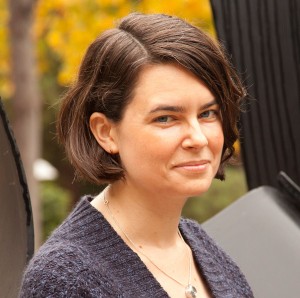Aleecia McDonald Appointed Director of Privacy at the Center for Internet and Society
STANFORD, Calif., December 3, 2012— Stanford Law School today announced the appointment of Aleecia M. McDonald as Director of Privacy at the Center for Internet and Society (CIS). McDonald will lead the Center’s work at the intersection of online technologies, privacy, and policy, with a particular focus on: user expression of Internet privacy preferences including Do Not Track, a technology and policy proposal that enables Internet users to opt out of tracking by websites; self-help measures and privacy enhancing technologies; mobile privacy challenges; and global frameworks for privacy rights.

McDonald was most recently a resident fellow at CIS. Prior to that, she was a senior privacy researcher at Mozilla, where she worked on their Do Not Track web browser feature, as well as co-chair of the World Wide Web Consortium (W3C) Tracking Protection Working Group. Her academic research areas include user expectations for Do Not Track, mobile privacy notices, behavioral economics and mental models of privacy, and the efficacy of industry self-regulation. McDonald has a decade of experience working for software startups and earned a PhD in Engineering & Public Policy at Carnegie Mellon University, where she studied online privacy as a member of the CyLab Usable Privacy and Security Laboratory.
The Center for Internet and Society is a public interest technology law and policy program that studies the interaction of new technologies and the law and is a part of the Law, Science and Technology Program at Stanford Law School. Led by faculty director Barbara van Schewick, CIS strives to improve both technology and law, encouraging decision makers to design both as a means to further democratic values. Along with conducting research and policy analysis, the Center sponsors legal fellowships, organizes events to foster discussion of critical policy issues, and provides educational opportunities for law students to conduct applicable research and policy analysis in this field.
“Data privacy is reaching a critical level of public and regulatory interest. Current industry data practices face intense scrutiny from policy makers around the world. The next few years are pivotal for Internet privacy,” said Barbara van Schewick, associate professor of law, Helen L. Crocker Faculty Scholar, and associate professor of electrical engineering (by courtesy). “Aleecia’s expertise in technology and public policy uniquely qualifies her to find solutions that effectively protect privacy. I am thrilled that she will lead our research in this field.”
“Privacy is a complex and nuanced topic, but one that affects our lives everyday,” McDonald said. “CIS is one of the few centers in the country that not only allows but nurtures interdisciplinary privacy work. I am very lucky to be able to call CIS my home as I work on fascinating topics that contribute meaningfully to policy dialogues — from qualitative and quantitative insights about user interactions to technical measurement of tracking techniques.”
About Stanford Law School
Stanford Law School is one of the nation’s leading institutions for legal scholarship and education. Its alumni are among the most influential decision makers in law, politics, business, and high technology. Faculty members argue before the Supreme Court, testify before Congress, produce outstanding legal scholarship and empirical analysis, and contribute regularly to the nation’s press as legal and policy experts. Stanford Law School has established a new model for legal education that provides rigorous interdisciplinary training, hands-on experience, global perspective and focus on public service, spearheading a movement for change.
